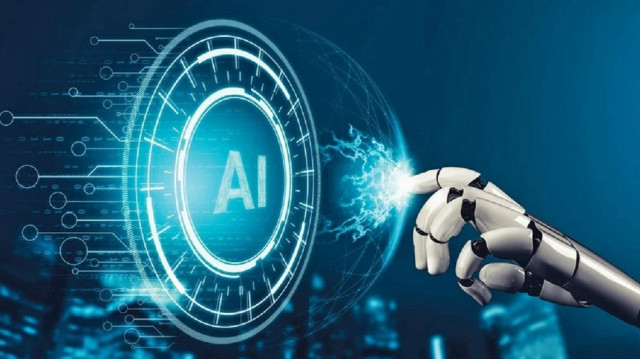
Evolving competition, biotechnology, resource divide, fragmenting public trust, and tech integration among key areas to shape future, according to NATO’s science macro trends report
The race to gain the upper hand in artificial intelligence (AI) and quantum technology will be decisive in the future of science and technology worldwide in the next two decades, according to a NATO report.
NATO’s Science and Technology Organization (STO) published the “Science and Technology Trends 2025–2045.”
The areas of AI, especially “robotics and autonomous systems,” quantum technologies, “biotechnology and human enhancement technologies,” space technologies, “hypersonics and in-space propulsion technologies,” new materials and production, energy, and connectivity networks, will usher in a new era in science in the coming decades.
New roadmaps are being developed and implemented in civil and military markets with the rapid change, development, and transformation in these areas, the report says, placing great emphasis on quantum systems and digitalization, which are expected to be decisive in the future of the economy.
The report outlines six strategic macro trends to shape the future, namely “Evolving Competition Areas,” “Race for AI and Quantum Superiority,” “Biotechnology Revolution,” “Resource Divide,” “Fragmenting Public Trust,” and “Technology Integration and Dependencies.”
In the arenas of space, cyber, and “the hybridization of warfare,” the constantly changing competition seemingly has no limits, the report argues, pointing out that a signal from a satellite can direct an entire operation on the other side of the world, while cyber attacks concern the safety of entire societies.
NATO says that AI and quantum technologies have come to the forefront of the struggle of tech hegemony, as these advances of technology influence all aspects of life, from defense to the economy, education, health care, and more. The report says countries with an edge in this area will lead in decision-making, crisis response, and global influence.
Meanwhile, the “Biotechnology Revolution” is expected to bring about risks due to its potential malicious use in creating bioweapons, genetic agents, and more, while playing a key role in transforming health care, security, ethics, and international relations.
At the same time, virtual and augmented reality technologies contribute to the fragmented public trust in content, negatively influencing collective decision-making and societal responses to crises and defense strategies, among other things.
NATO’s Innovation Fund (NIF) and its Defense Innovation Accelerator for the North Atlantic (DIANA) organization are expected to play key roles in tech development and reshaping tech diplomacy.
Türkiye, a country with a strong defense industry infrastructure and the second largest military force in NATO, employs over 100,000 qualified workers in over 3,500 defense firms, with more than 80% of defense products containing domestically produced content.
Türkiye is a key NATO ally that can play an important role in the technological transformation. The integration capabilities of the Turkish industrial system are expected to lead to the development of NATO's common platforms.
Turkish Minister of Industry and Technology Mehmet Fatih Kacir said in a recent meeting that Türkiye plays a pioneering role in the alliance’s programs.
“We ranked fifth in applications for DIANA’s 2023–2024 project calls,” he said.
“Türkiye is ready to take up a leadership role in this field, as we will continue to enhance our industrial strength, innovative approach, and strategic importance within the Alliance,” he added.







